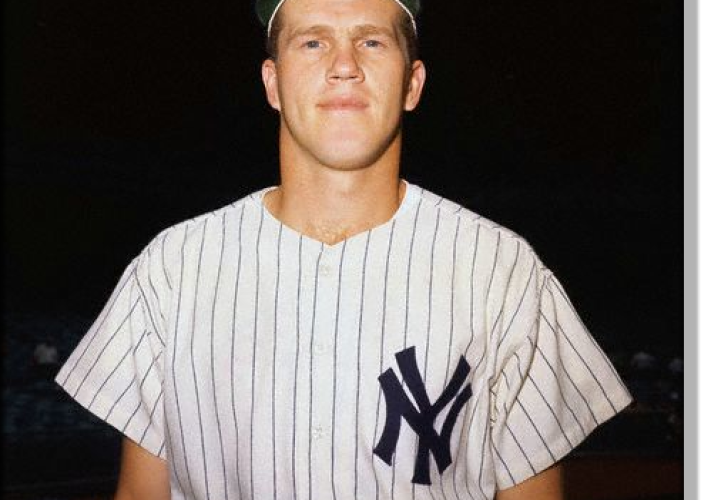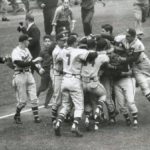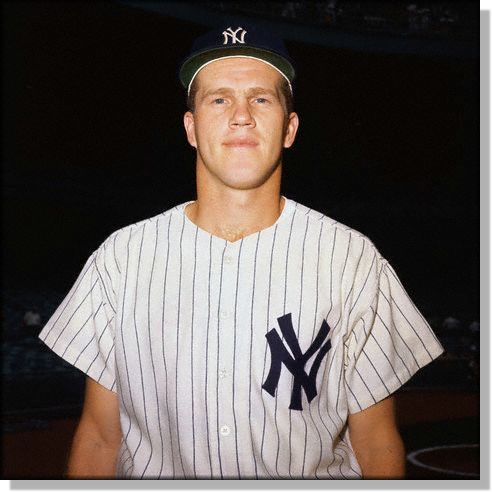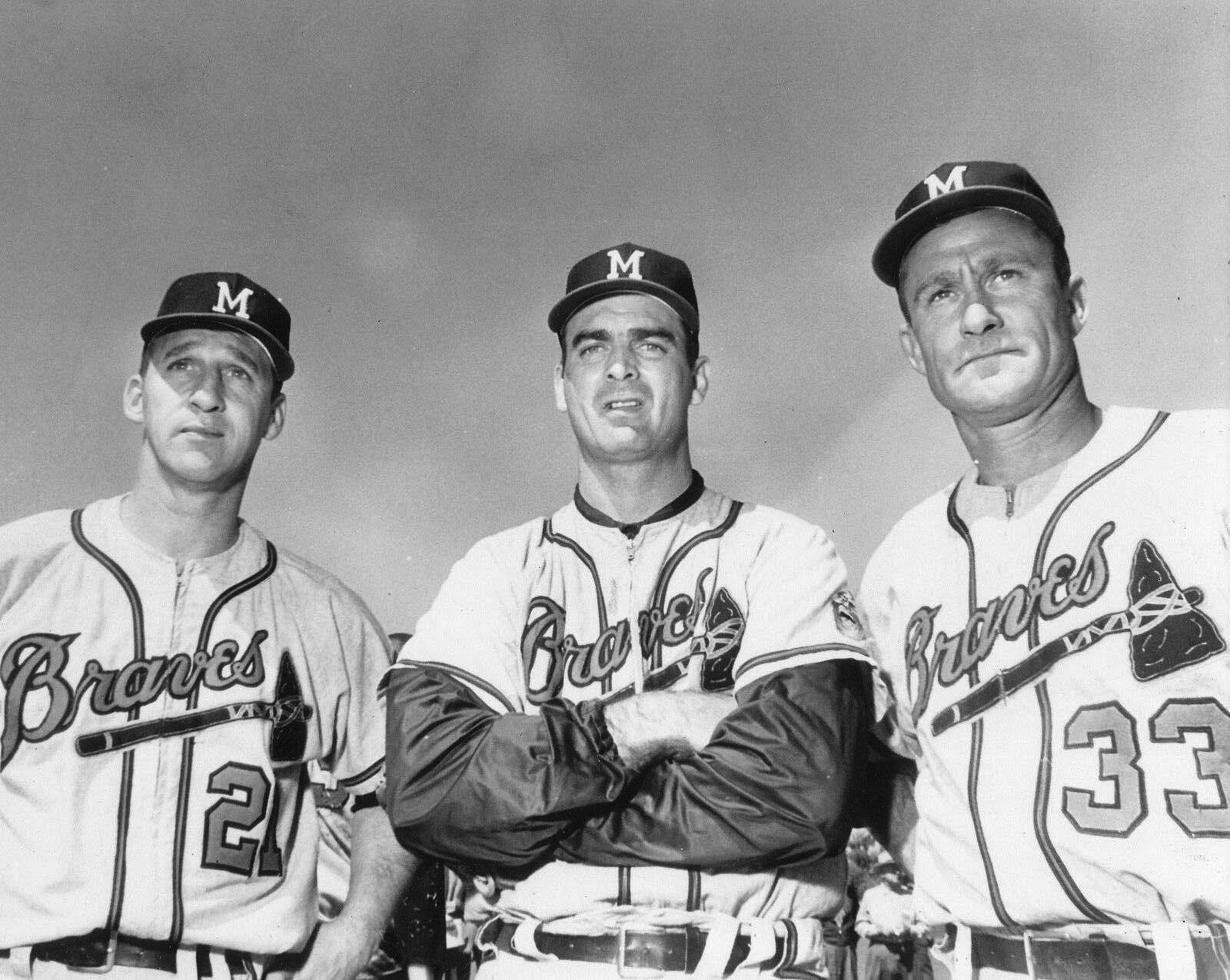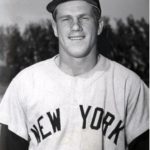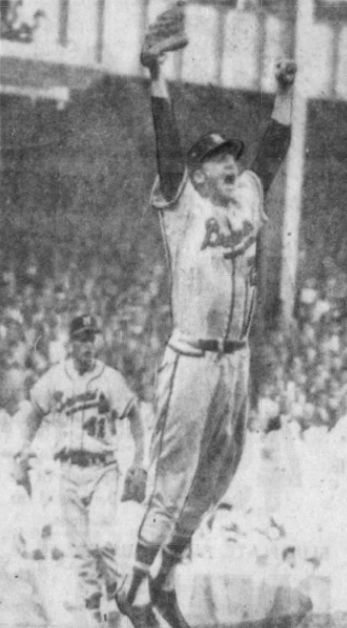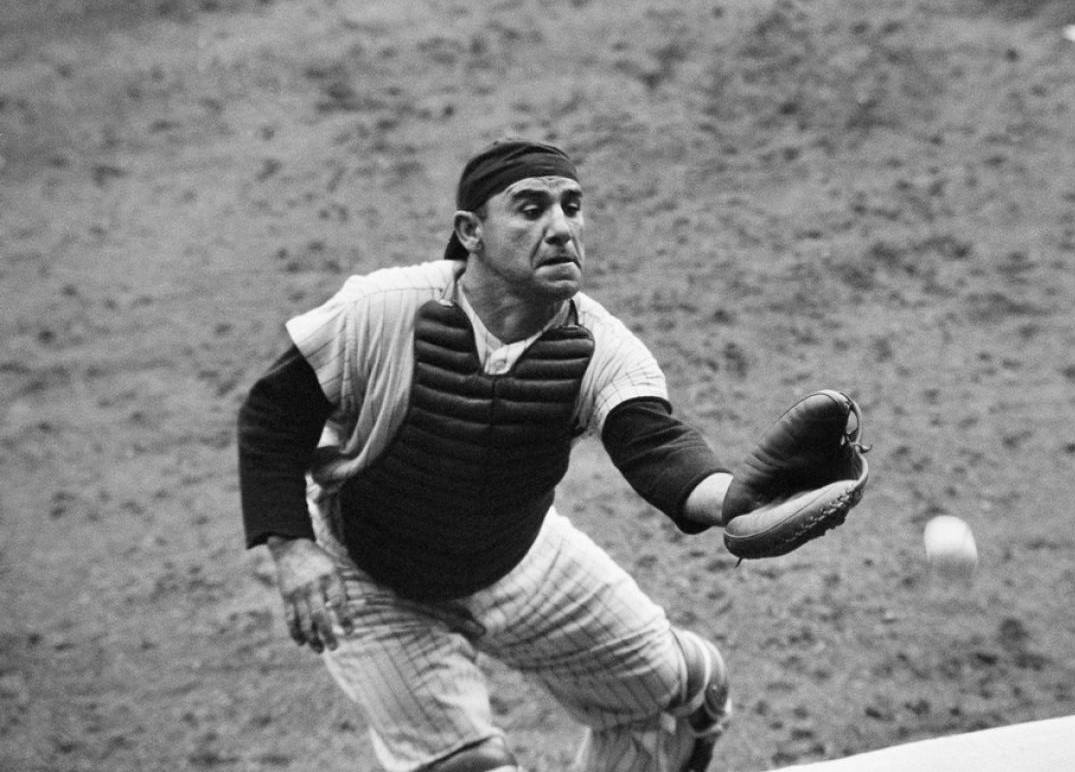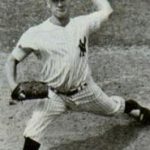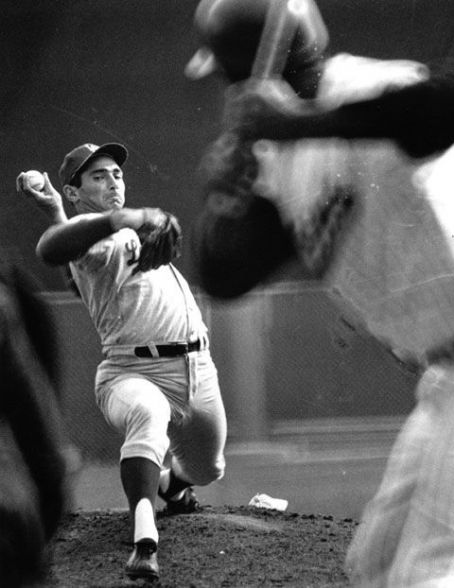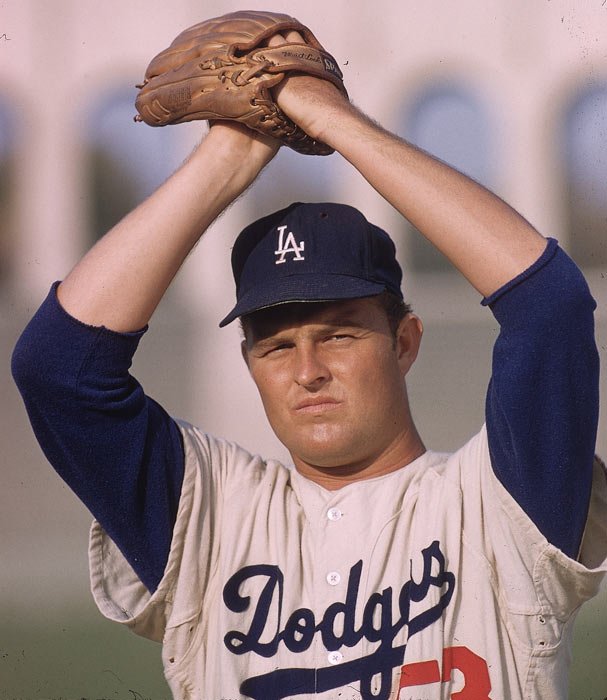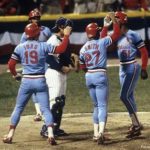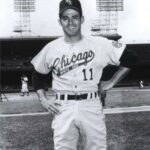Tony Kubek
Positions: Shortstop, Outfielder and Third Baseman
Bats: Left • Throws: Right
6-3, 190lb (190cm, 86kg)
Born: October 12, 1935 in Milwaukee, WI
High School: Bay View HS (Milwaukee, WI)
Debut: April 20, 1957 (9,030th in MLB history)
vs. BOS 1 AB, 0 H, 0 HR, 0 RBI, 0 SB
Last Game: October 3, 1965
vs. BOS 4 AB, 3 H, 1 HR, 3 RBI, 0 SB
Full Name: Anthony Christopher Kubek
View Player Bio from the SABR BioProject
Nine Other Players Who Debuted in 1957
Johnny Roseboro
Roger Maris
Jim Landis
Claude Osteen
Milt Pappas
Lenny Green
Tony Kubek
Jim Gentile
Juan Pizarro
All-Time Teammate Team
Coming Soon
Notable Events and Chronology for Tony Kubek Career
A key contributor to the success the New York Yankees experienced during the late 1950s and early 1960s, Tony Kubek played for seven pennant-winning teams and three world championship clubs during his nine years in New York. Although not the most naturally-gifted member of any of those squads, Kubek’s mental toughness and aggressive style of play made his presence essential to the success of the Yankees throughout the period. After neck and back problems forced Kubek into premature retirement at the conclusion of the 1965 campaign, it took New York another 30 years to find another shortstop with the same leadership qualities and fierce determination, in the person of Derek Jeter.
Born in Milwaukee, Wisconsin on October 12, 1935, Anthony Christopher Kubek attended Milwaukee’s Bay View High School, where he excelled as an all-around athlete. After graduating from Bay View, Kubek signed with the Yankees as an 18-year-old amateur free agent in 1954. He rose rapidly through the New York farm system, joining the major league team for the first time at the start of the 1957 season.
Kubek quickly became one of manager Casey Stengel’s favorites, since his versatility and athleticism fit in perfectly with The Old Professor’s managerial style. Stengel tended to platoon many of his players, and he also enjoyed playing them at multiple positions – especially in the infield. Although Kubek came up to the Yankees as an infielder, he also had the ability to play the outfield. As a result, he saw extensive playing time as a rookie not only at his natural position of shortstop, but also at third base and in the outfield. Kubek ended up compiling a .297 batting average in a total of 127 games over the course of his first big-league season, earning in the process American League Rookie of the Year honors with his fine all-around play. He then comported himself quite well in the World Series – one that the Yankees lost to the Braves in seven games. Playing in his hometown of Milwaukee, the lefthanded-hitting Kubek hit two home runs in Game Three. He also scored three runs and knocked in four others during the contest.
After serving as a jack-of-all-trades as a rookie, Kubek supplanted Gil McDougald as New York’s everyday shortstop the following year, earning in the process his first selection to the American League All-Star Team. Although frequently moved around in the field by Stengel once again in 1959, Kubek made his second All-Star Game appearance, batting .279 and leading the league with 13 sacrifice bunts. Back at shortstop in 1960, Kubek had perhaps his most productive season, establishing career highs in home runs (14) and runs batted in (62), while batting .273. Nevertheless, the 1960 campaign lives in infamy in the mind of Kubek, who experienced his worst moment as a major leaguer in Game Seven of the World Series.
With the Yankees nursing a tenuous lead late in the game, Kubek readied himself to field a potential doubleplay ground ball hit directly at him by Pittsburgh centerfielder Bill Virdon. However, shortly before the ball reached Kubek, it hit a pebble on the infield, causing it to take a bad hop and strike the Yankee shortstop in the throat. After Kubek recovered from the blow, he helplessly watched as the Pirates rallied for five runs to temporarily take the lead in a game they eventually won in the bottom of the ninth inning on Bill Mazeroski’s home run.
New York’s loss to the Pirates in the 1960 Fall Classic ended up costing Casey Stengel his job. Ralph Houk took over as Yankee skipper at the start of the 1961 season, and he made creating a greater sense of stability on the team one of his top priorities. To that end, Houk inserted Bobby Richardson as his everyday second baseman and Kubek as his everyday shortstop, batting them first and second in the lineup, respectively. Kubek responded by setting career highs in hits (170), at-bats (617), and runs scored (84), finishing second in the league with 38 doubles, and being selected to The Sporting News All-Star team. In spite of his two home runs in Game Three of the 1957 World Series, Kubek always maintained that the greatest thrill he ever got from baseball was batting second in the 1961 Yankee lineup, just ahead of Roger Maris and Mickey Mantle.
While Kubek was a modest man who always considered himself just a small piece of the puzzle, his doubleplay partner Bobby Richardson realized how important Kubek was to the team. Richardson said, “Tony was underrated as a player. He was not a flashy player, but he made all the plays. When he was in the lineup the Yankees won. He could go in the hole, he could make the doubleplay, he got on base. He was just a team leader in every sense. He could have played any position.”
With Kubek in the army for much of the 1962 season, Yankee rookie Tom Tresh saw extensive action at shortstop, as well as in the outfield. Tresh later described Kubek as, “A great shortstop who was a bit unorthodox in his style. He wasn’t as fluid or as smooth as some guys, but he was very efficient and very fast, with a strong arm. He made all the plays, and he was a good clutch hitter.”
There were clearly more talented players than Kubek on the Yankee teams of the late 1950s and early 1960s. However, while those teams were known more for their power and pitching, most astute baseball people believed the core of their success to be in the strength of their middle infield. The combination of Kubek at shortstop and Richardson at second base was as solid as any in the American League, and many, such as relief pitcher Steve Hamilton, felt that the two men were the heart and soul of the team during that period. Kubek, in particular, played with a tremendous determination and inner toughness that seemed to inspire his teammates, and that generally permitted him to perform his best in big games. Hamilton felt that Kubek’s toughness and desire to win might well have made him the most important player on the team. Kubek’s teams had always done well in the minor leagues, and he expected to win at the major league level as well. Despite his choir boy looks and clean-cut image, no player on those Yankee teams was any tougher, or more confrontational, than Kubek.
Teammate Bobby Richardson recalled two incidents from his minor league days with Kubek that perhaps best exhibited the shortstop’s inner toughness. The first involved Eddie Stanky, a former big league player who served as the opposing team’s manager at the time. An argument ensued after a close call at second base causing Stanky to leave his dugout. As he yelled and screamed at everyone in sight, Stanky attempted to intimidate the umpires and Kubek’s Denver teammates alike. The Denver shortstop simply drew a line in the dirt and told Stanky, “Cross that line and I’ll knock you on your ass.” Stanky, surprised that a 20-year-old youngster would have the temerity to make such a statement to a tough veteran like himself, did not accept the challenge.
Another incident in Denver occurred when a pitcher named Frank Barnes threw at Kubek, who immediately laid down a bunt so he could nail Barnes at first base.
It was Kubek’s mental toughness and desire to win as much as his playing ability the Yankees missed when he retired prematurely at the age of 29 after developing severe neck and back problems while serving in the army during 1962. Kubek played three more years in pain after returning from the military, but he never attained the same level of success. After a respectable 1963 campaign during which he batted .257, Kubek appeared in just over 100 games in each of the next two seasons, choosing to announce his retirement after batting a career-low .218 in 1965.
Following his playing career, Kubek became a successful television broadcaster. After initially serving strictly as a color commentator on NBC’s Saturday Game of the Week, Kubek expanded his role to that of play-by-play announcer, both for NBC and, later, for Toronto Blue Jays telecasts. Although he gradually developed into a solid play-by-play announcer, Kubek truly excelled as a commentator, preceding Tim McCarver and Jim Kaat as baseball’s first modern style analyst. Covering the Toronto Blue Jays for 13 years, Kubek drew praise from the Toronto Star, which stated that he “educated a whole generation of Canadian baseball fans without being condescending or simplistic.”
In addition to being extremely insightful and knowledgeable, Kubek became known for his outspokenness and candor. While calling the 1972 American League Championship Series, Kubek attempted to justify Oakland’s Bert Campaneris throwing his bat at Detroit’s Lerrin LaGrow in response to a knockdown pitch by suggesting that any pitch aimed squarely at a batter’s legs could endanger his career. On another occasion, Kubek butted heads with former Baseball Commissioner Bowie Kuhn, criticizing the latter for failing to be in attendance when Hank Aaron broke Babe Ruth’s all-time home run record.
Kubek, though, was never more forthright with anyone than he was with George Steinbrenner. After Steinbrenner’s Yankees turned into a laughing stock during the early 1990s, Kubek criticized the owner in a May 27, 1991 Sports Illustrated article, saying,
“George’s legacy is not the World Series winners of ’77 and ’78 or having the best record of any team in the ’80s, his legacy is these past five seasons—teams with worse and worse records culminating in last year’s last-place finish.” Kubek also added, “George talked a lot about tradition, but it was all phony, it was just him trying to be part of the tradition. You can’t manufacture tradition in a plastic way. You have to have a certain class to go with it.”
It was such candidness that eventually cost Kubek his job as Yankee announcer at MSG Network. However, it was also such honesty and straightforwardness that enabled him to win the 2009 Ford C. Frick Award, an honor bestowed on broadcasters by the Baseball Hall of Fame.
@ET-DC@eyJkeW5hbWljIjp0cnVlLCJjb250ZW50IjoicG9zdF90YWdzIiwic2V0dGluZ3MiOnsiYmVmb3JlIjoiTGVhcm4gTW9yZSBhYm91dCB0aGUgdGVhbXMsIHBsYXllcnMsIGJhbGwgcGFya3MgYW5kIGV2ZW50cyB0aGF0IGhhcHBlbmVkIG9uIHRoaXMgZGF0ZSBpbiBoaXN0b3J5IC0gLSAtIC0gLSAtIC0gIiwiYWZ0ZXIiOiIiLCJsaW5rX3RvX3Rlcm1fcGFnZSI6Im9uIiwic2VwYXJhdG9yIjoiIHwgIiwiY2F0ZWdvcnlfdHlwZSI6InBvc3RfdGFnIn19@
Factoids, Quotes, Milestones and Odd Facts
Coming soon
Other Resources & Links
Coming Soon
If you would like to add a link or add information for player pages, please contact us here.

